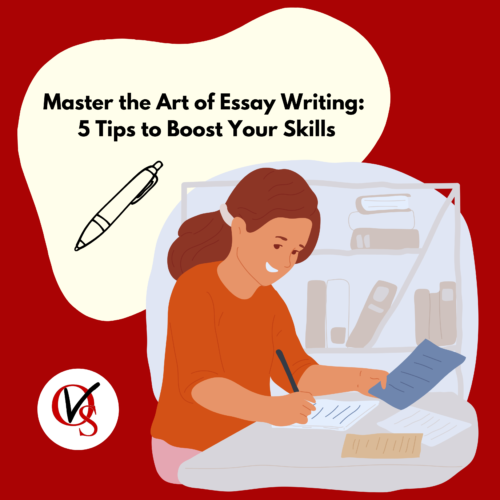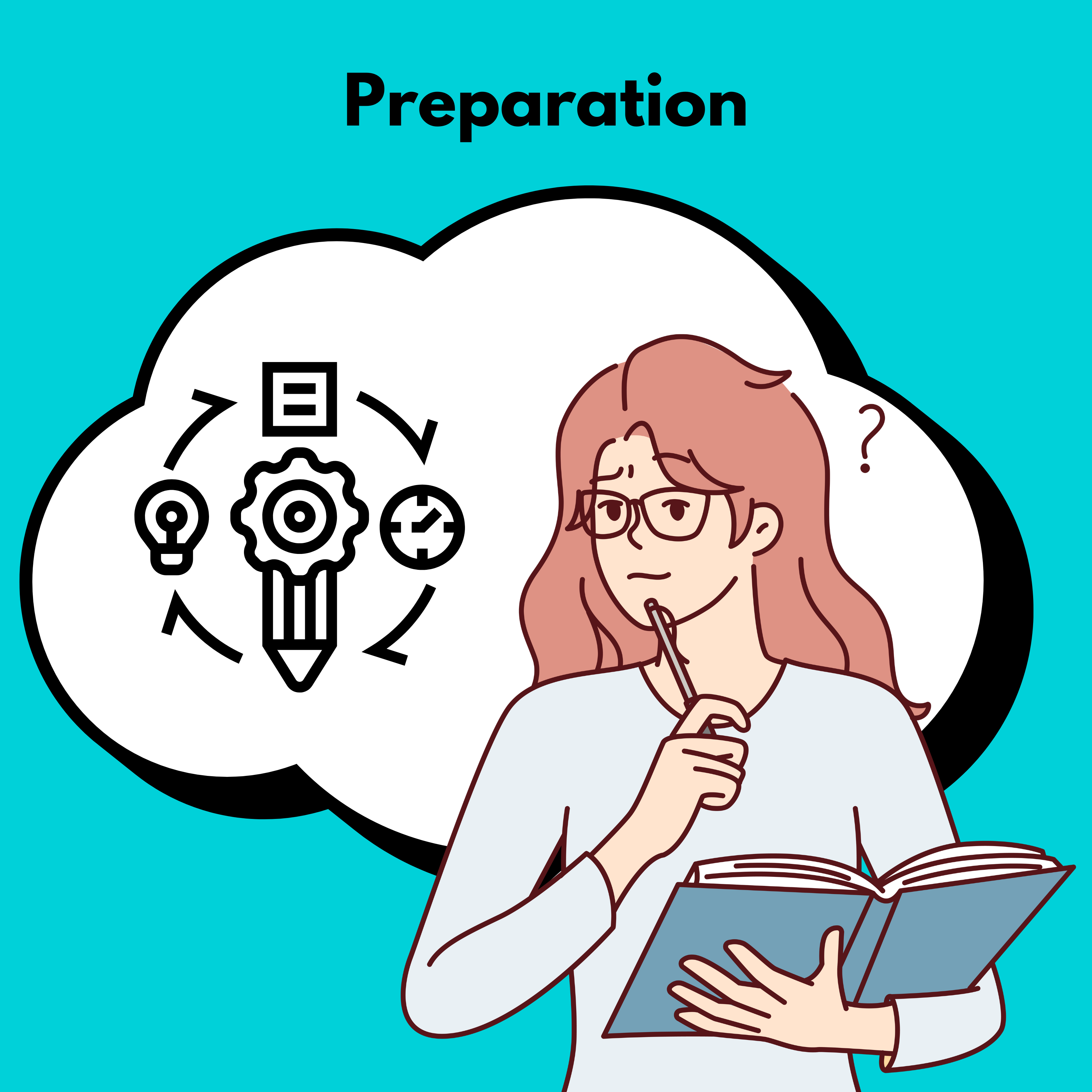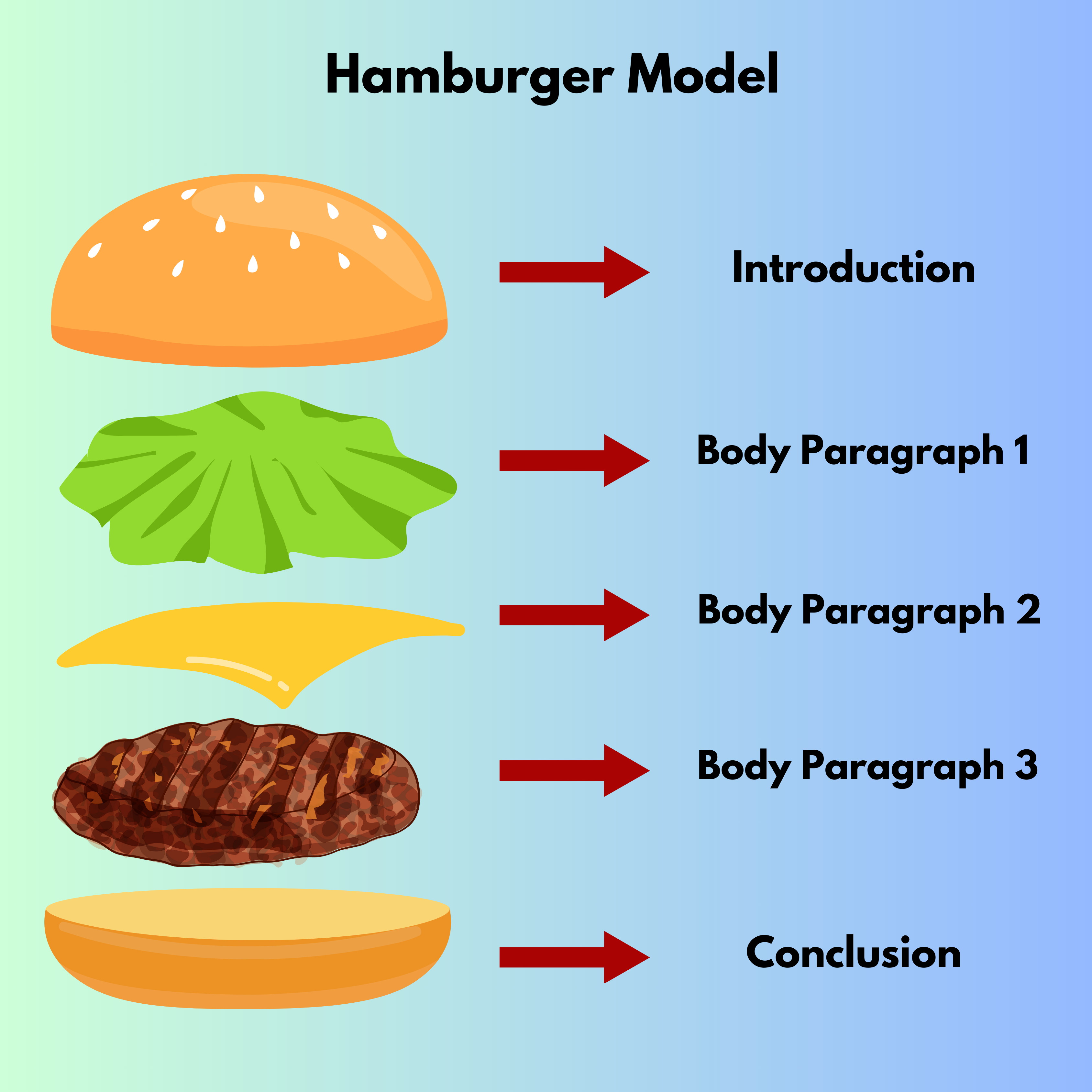
For some students, the word “essay” brings to mind the most feared and hated form of schoolwork. Essay anxiety is very common, and it is easy to understand why students may be apprehensive about writing one. It’s a particular style of writing often reserved for school assignments, and the pressure to perform well can be daunting. However, essays don’t need to be such a terrifying challenge. By keeping a few easy tips in mind, students can better understand why essays are helpful, enhance their essay-writing skills, and soon come to find essays are not as scary as they seem, but can actually be simple.
Preparation is Key

Before you begin writing, it’s important to understand your topic. Taking notes early on can be very helpful. If you’re writing a book report, you should make sure you’re familiar with the book. Note any interesting quotes or ideas while reading, and don’t forget to properly cite your source. If you’re writing a research paper, make sure your research is complete before you begin writing your essay. Your essay is just about effectively communicating what you’ve learned from your research. Even if you’re writing a personal essay that does not require outside sources, making notes of your own thoughts can be very helpful, so you know exactly what ideas you want to express. Ultimately, an essay is about communicating your thoughts clearly, so take time to understand them first.
Understand the Purpose of an Essay
One reason students may suffer essay anxiety, is that they may not fully understand the requirements for their assignment. At first, the rules and guidelines provided by their teacher may seem strange and arbitrary, but really, they’re meant to make your writing process easier and more effective. The main goal of an essay is to prove a point, also known as a “thesis.” Depending on the type of essay, how you prove the point may differ, but keeping in mind that you’re writing to prove one central point can help you stay focused and give your ideas a connection and flow.
In a book report for example, you may be trying to prove your personal interpretation of the book (or of an aspect of the book). In a research paper, your goal is to prove to your readers the conclusion that you’ve reached after doing your research. Even in a personal narrative essay, your goal would still be to express a core idea through your narrative, which can be show a moral or lesson. Remembering why you’re writing; it will keep you focused and motivated.
Embrace Structure

By the time students reach high school, many will have already been introduced to some standard forms of essay structure. It’s important to remember that these exist largely to make your writing process easier. The common five-paragraph structure, for example, encourages writers to create a brief outline of their essay in the first paragraph. This introductory paragraph outlines the main point of your essay and serves as a blueprint for the rest of the paper. The body paragraphs then expand on the ideas introduced in the first paragraph. Once you have your introduction, the rest of the essay becomes more manageable because you already know what to write about in each section.
Ask for Feedback
Almost no professional writing is published without first being reviewed or revised by editors. . Your teachers are always willing to help with advice or feedback, so don’t hesitate to ask for guidance. Whether you’re unsure if your thesis is clear enough, or you need help with structure, your teachers are there to help.
It’s not just your teachers that you can ask for help and support. Friends, family, or classmates, can often offer valuable insight and help. You might not always agree with their opinions, but since your goal is to express your thoughts, seeing how other people understand your writing is always useful, so you can try to adjust your writing to be clear to as many people as possible.
Always Proofread

An easy but often overlooked step in writing is to proofread your own work before having anyone else read it. Everybody makes mistakes and typos, and even bestselling books will still contain a few, but all writers should strive to find these mistakes before anyone else does. In school, simple mistakes can negatively impact your grades, so taking the time to proofread your work can significantly improve your marks. Even if you’re submitting a rough draft, whether to a teacher or a peer, always make sure it’s your best work. This way, the feedback you receive will help you improve your writing rather than fix simple mistakes that you could have caught yourself.
You may find that reading your work out loud (even if quietly) can help you catch mistakes you might have missed. If it doesn’t sound right out loud, then it probably isn’t right on paper. Also, remember to proofread again after making any changes. Even experienced writers may catch an error while proofreading, only to introduce a new one during the revision process. Proofreading should be done multiple times, and the final review should be the last thing you do before submitting your work. You’d be surprised how much this simple step can improve your grades
Conclusion: Essays Aren’t Just for Schoolwork
Essays aren’t just an academic task—they’re a way to express ideas clearly and thoroughly. Even this very article you’re reading is an essay, demonstrating that essay writing doesn’t have to be a scary or difficult process. By following these tips, you’ll find that your essay-writing skills will improve in no time, and you’ll continue to grow as a writer with each new assignment.
